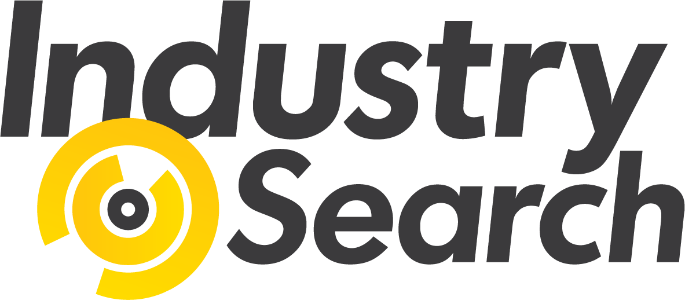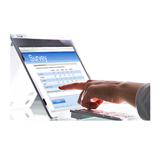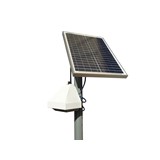Standards Australia Limited
In a world of increasing (and, in the light of truly spectacular corporate misfeasance, justified) concerns about the broad community impacts of corporate behaviour, the days when governance and related reporting owed more to the lip service of ‘vision and values’ than to any objective measures are rapidly disappearing.
The proliferation of reporting and governance guidelines is testimony to the priority now assigned to improved corporate accountability. These include signatory agreements, legislation – including in Australia the passing on 30 June 2004 of the much-vaunted CLERP 9 (Corporate Law Economic Reform Program (Audit Reform and Corporate Disclosure) Act) and strong growth in triple bottom line reporting in accordance with the Global Reporting Initiative (GRI). The profile of the complementary AA 1000 (AccountAbility) framework, developed by the Institute for Social and Ethical Responsibility is also growing.
Attracting some of the closest attention is environmental and sustainability reporting, in which organisations reveal the environmental impacts from their commercial activities and highlight their contribution to sustainable economic, environmental and social interactions. In fact, some 45 per cent of the Global Fortune Top 250 Companies now publish such reports.
A corollary to this, in line with the newfound fervour for transparency of corporate accountability, is the growing demand for external, objective verification of public non-financial reports, to confirm that critical environmental issues are presented in a balanced and accurate manner by the organisation. This, in turn assists the reader to make an informed decision about the actions of the organisations.
One major organisation taking a strong position on environmental management, reporting and verification is the international giant and iconic energy business the BP Group.
In looking for effective ways to consistently describe how its operations around the world manage environmental issues at a local level, in 2003 BP tested a new approach. This recognised that “accepted practices of aggregating and charting emissions data can mask the most significant environmental issues and challenges the company faces.” BP describes its approach as a “mapping tool designed to increase transparency and put the markedly different issues faced from one BP site to another into local context.”
This approach now forms a significant part of BP’s sustainability reporting. As part of the mapping approach, many sites have provided a verified environmental statement (VES).
BP Solar Australia is one such site. Part of BP Solar’s global operations, which employs some 2,000 people worldwide, the Sydney-based Australian operation is the largest solar panel manufacturer in the Southern Hemisphere.
Manufacturing photovoltaic cells and modules, a major portion of its business is the supply of complete solar electricity systems to major organisations, while on the export front, solar cells manufactured in Australia are supplied to other BP Solar assembly plants for major projects globally.
Supporting BP Solar’s vision to provide clean energy that is affordable, suitable and available to all is the requirement by the parent company that all its sites are certified to the ISO 14001 Standards for Environmental Management.
Having achieved Environmental Certification through SAI Global in 2003, BP Solar Australia became subject to the BP Group’s global environmental reporting requirements – which included provision of a VES that met BP’s stated guidelines.
“The VES is prepared according to BP’s own published guidelines,” said Catherine Vaughan, Quality Assurance and Environment Manager at BP Solar Australia. “SAI Global was able to produce a report that met not only those internal guidelines, but also the relevant AA 1000 criteria.”
Certainly according to Ms Vaughan, having the certified Environmental Management System (EMS) in place meant the wherewithal to meet the guidelines was at hand. However, going through the verification process with SAI Global, in addition to resulting in a VES that met both the BP guidelines and the AA 1000 criteria, yielded further benefits.
“The VES has become an invaluable tool for us going forward. We learnt an enormous amount in the process. This was particularly the case in terms of expressing ourselves in a transparent manner and organising data so we could demonstrate our performance in a meaningful way against the stated criteria and requirements.”
Essentially, Vaughan explained, from an internal perspective, the verification constituted a further touchstone for environmental performance. This in turn provided insight into the way external stakeholders perceive the company’s performance – and how to more effectively communicate them.
“The whole process with SAI Global was far from being a ‘tick-the-box’ operation. It was very apparent from the beginning that strict controls were in place. The scrupulous attention to detail gave me great confidence in the outcome – it was clear that the independent verifiers, SAI Global, had just as much at stake as we did. And to receive not only the verification itself but the full report and to be guided through the whole process was more than we had ever expected.”
Once submitted to the BP Group, Vaughan’s initial impressions were confirmed.
“What SAI global supplied enabled us to fully and easily respond to all the queries of the BP Group environmental report maker. I also believe from looking at the published result that the level of work and detail is apparent. The whole process turned what we’d viewed as a chore into a major positive.”
SAI Global’s Verification of Environmental Sustainability Reports program
SAI Global now offers specialised independent assessment of the detail provided in environmental reports.
This assessment and verification can be made against an organisation’s own pre-defined single or multiple criteria, including relevant industry guidelines and/or codes of practice, the AA1000 Framework (www.accountability.org.uk/AA1000) and in line with the Global Reporting Initiative (GRI) framework.
Following the assessment, SAI Global provides an assurance statement and/or report.
Verification services are suitable for all forms of environmental and sustainability disclosure, whether voluntary such as for public environmental reporting; in accordance with signatory agreements; under regulatory requirements such as the Corporations Law; or pursuant to media disclosure or environmental protection authorities notices, for example.







